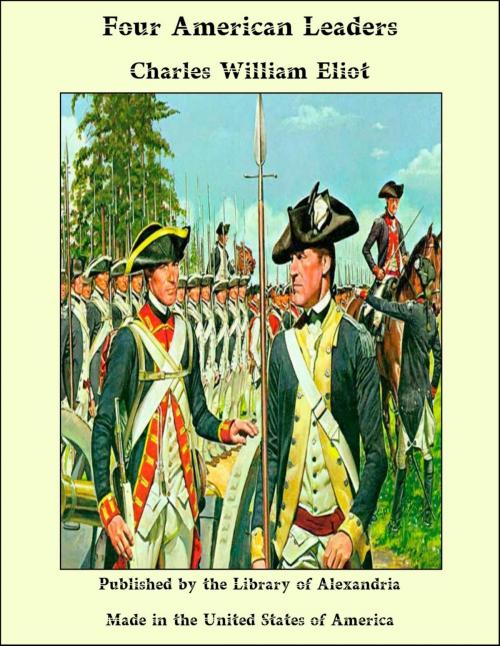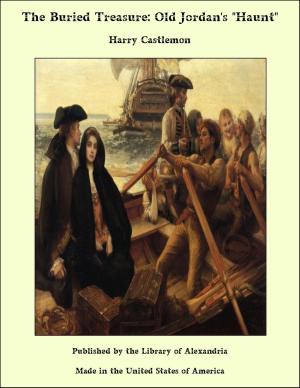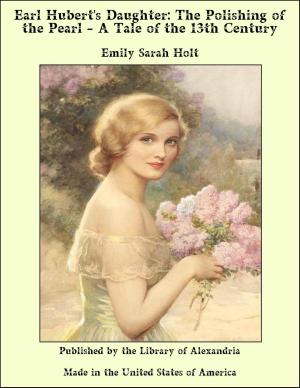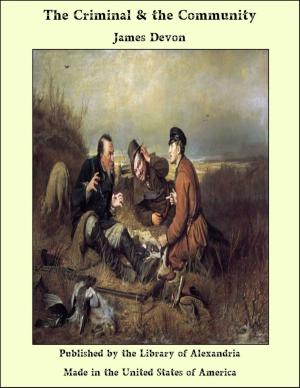| Author: | Charles William Eliot | ISBN: | 9781465575845 |
| Publisher: | Library of Alexandria | Publication: | March 8, 2015 |
| Imprint: | Language: | English |
| Author: | Charles William Eliot |
| ISBN: | 9781465575845 |
| Publisher: | Library of Alexandria |
| Publication: | March 8, 2015 |
| Imprint: | |
| Language: | English |
The facts about Franklin as a printer are simple and plain, but impressive. His father, respecting the boy's strong disinclination to become a tallow-chandler, selected the printer's trade for him, after giving him opportunities to see members of several different trades at their work, and considering the boy's own tastes and aptitudes. It was at twelve years of age that Franklin signed indentures as an apprentice to his older brother James, who was already an established printer. By the time he was seventeen years old he had mastered the trade in all its branches so completely that he could venture, with hardly any money in his pocket, first into New York and then into Philadelphia without a friend or acquaintance in either place, and yet succeed promptly in earning his living. He knew all departments of the business. He was a pressman as well as a compositor. He understood both newspaper and book work. There were at that time no such sharp subdivisions of labor and no such elaborate machinery as exist in the trade to-day; and Franklin could do with his own eyes and hands, long before he was of age, everything which the printer's art was then equal to. When the faithless Governor Keith caused Franklin to land in London without any resources whatever except his skill at his trade, the youth was fully capable of supporting himself in the great city as a printer. Franklin had been induced by the governor to go to England, where he was to buy a complete outfit for a good printing office to be set up in Philadelphia. He had already presented the governor with an inventory of the materials needed in a small printing office, and was competent to make a critical selection of all these materials; yet when he arrived in London on this errand he was only eighteen years old. Thrown completely on his own resources in the great city, he immediately got work at a famous printing house in Bartholomew Close, but soon moved to a still larger printing house, in which he remained during the rest of his stay in London. Here he worked as a pressman at first, but was soon transferred to the composing room, evidently excelling his comrades in both branches of the art. The customary drink money was demanded of him, first by the pressmen with whom he was associated, and afterwards by the compositors. Franklin undertook to resist the second demand; and it is interesting to learn that after a resistance of three weeks he was forced to yield to the demands of the men by just such measures as are now used against any scab in a unionized printing office. He says in his autobiography: "I had so many little pieces of private mischief done me by mixing my sorts, transposing my pages, breaking my matter, and so forth, if I were ever so little out of the room ... that, notwithstanding the master's protection, I found myself obliged to comply and pay the money, convinced of the folly of being on ill terms with those one is to live with continually." He was stronger than any of his mates, kept his head clearer because he did not fuddle it with beer, and availed himself of the liberty which then existed of working as fast and as much as he chose. On this point he says: "My constant attendance (I never making a St. Monday) recommended me to the master; and my uncommon quickness at composing occasioned my being put upon all work of dispatch, which was generally better paid. So I went on now very agreeably."
The facts about Franklin as a printer are simple and plain, but impressive. His father, respecting the boy's strong disinclination to become a tallow-chandler, selected the printer's trade for him, after giving him opportunities to see members of several different trades at their work, and considering the boy's own tastes and aptitudes. It was at twelve years of age that Franklin signed indentures as an apprentice to his older brother James, who was already an established printer. By the time he was seventeen years old he had mastered the trade in all its branches so completely that he could venture, with hardly any money in his pocket, first into New York and then into Philadelphia without a friend or acquaintance in either place, and yet succeed promptly in earning his living. He knew all departments of the business. He was a pressman as well as a compositor. He understood both newspaper and book work. There were at that time no such sharp subdivisions of labor and no such elaborate machinery as exist in the trade to-day; and Franklin could do with his own eyes and hands, long before he was of age, everything which the printer's art was then equal to. When the faithless Governor Keith caused Franklin to land in London without any resources whatever except his skill at his trade, the youth was fully capable of supporting himself in the great city as a printer. Franklin had been induced by the governor to go to England, where he was to buy a complete outfit for a good printing office to be set up in Philadelphia. He had already presented the governor with an inventory of the materials needed in a small printing office, and was competent to make a critical selection of all these materials; yet when he arrived in London on this errand he was only eighteen years old. Thrown completely on his own resources in the great city, he immediately got work at a famous printing house in Bartholomew Close, but soon moved to a still larger printing house, in which he remained during the rest of his stay in London. Here he worked as a pressman at first, but was soon transferred to the composing room, evidently excelling his comrades in both branches of the art. The customary drink money was demanded of him, first by the pressmen with whom he was associated, and afterwards by the compositors. Franklin undertook to resist the second demand; and it is interesting to learn that after a resistance of three weeks he was forced to yield to the demands of the men by just such measures as are now used against any scab in a unionized printing office. He says in his autobiography: "I had so many little pieces of private mischief done me by mixing my sorts, transposing my pages, breaking my matter, and so forth, if I were ever so little out of the room ... that, notwithstanding the master's protection, I found myself obliged to comply and pay the money, convinced of the folly of being on ill terms with those one is to live with continually." He was stronger than any of his mates, kept his head clearer because he did not fuddle it with beer, and availed himself of the liberty which then existed of working as fast and as much as he chose. On this point he says: "My constant attendance (I never making a St. Monday) recommended me to the master; and my uncommon quickness at composing occasioned my being put upon all work of dispatch, which was generally better paid. So I went on now very agreeably."















